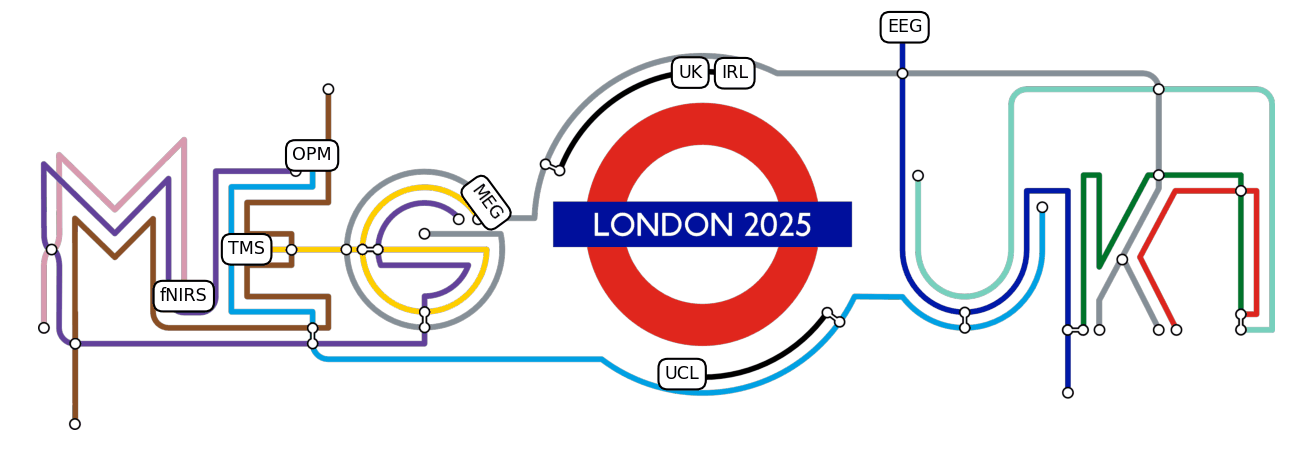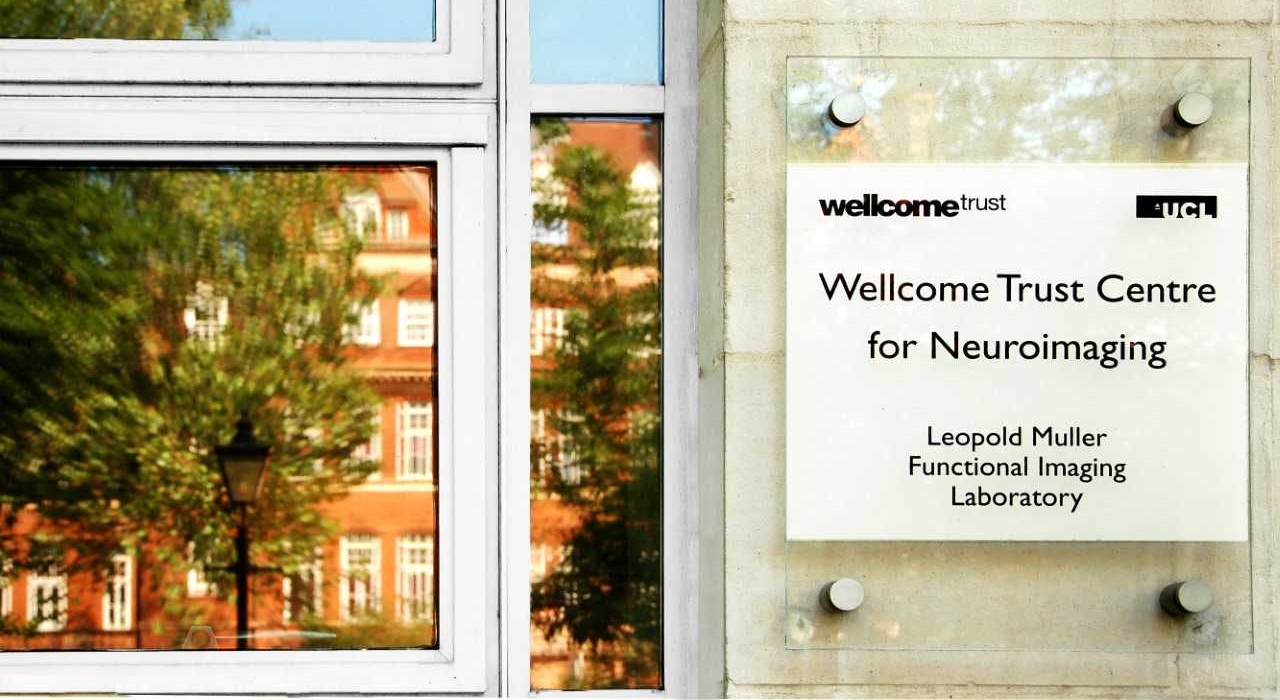Research topics
The core MEG research at University College London (UCL) aims both to develop new analysis methods, and to develop and implement new wearable MEG sensors. This is done through simulations, comparisons with known structure-function relationships of the brain, comparisons with MRI and fMRI, as well as with direct invasive recordings. While the analysis methods enable us to harness the structural information carried in the functional MEG signals and thus maximise the spatial resolution of MEG, the new sensors can be placed flexibly and directly on the scalp, which has several significant advantages. The signal-to-noise ratio is improved approximately 5-fold, and while healthy participants can be scanned while carrying out natural behaviours and tasks (without having their head constrained), the sensors also enable scanning of children, several new patient groups, and highly specific brain structures which were all previously inaccessible.
Moreover, the MEG scanner is used for experiments carried out by researchers at the Wellcome Centre for Human Neuroimaging across the following research groups: Awareness, Cognition, Emotion and Psychiatric Disorders, Computational Psychiatry, Decision & Emotion, Language, Memory & Space, Metacognition, Neurobiology of Sound, and Theoretical Neurobiology.
The MEG imaging software developed by the methods group at UCL is distributed within the Statistical Parametric Mapping package: http://www.fil.ion.ucl.ac.uk/spm/.
Likewise, the stimulus presentation software developed is available: http://www.vislab.ucl.ac.uk/cogent.php.
Research facilities and equipment
The MEG lab at UCL houses a 275-channel CTF (Canadian Thin Films) Omega system. It is located in a 3-layer shielded room in the basement of the building, and is fully equipped to deliver visual, auditory and tactile stimulation, and record eye movement and pupil size, electromyography, electroencephalography, heart rate and skin conductance. We also have a set of flexible subject-specific foam head-casts, used to stabilise the head between and within scans.
The Wellcome Centre for Human Neuroimaging also features three 3T Siemens MRI scanners and, soon to come, a 7T MRI scanner.
Location
The MEG lab at UCL is situated at the Wellcome Centre for Human Neuroimaging in Queen Square in London.
People
Rick Adams
Academic Clinical Lecturer in Psychiatry
Schizophrenia
Gareth Barnes
Professor & Head of Magnetoencephalography (MEG)
Models & Applications
Daniel Barry
Post-doc
Memory & Imagination
Daniel Bates
MEG Radiographer
All experimental projects
Alexander Billig
Post-doc
Auditory Perception & Memory
David Bradbury
Laboratory Manager
All experimental projects
Neil Burgess
Professor
Space & Memory
Daniel Bush
Post-doc
Space & Memory
Maria Chait
Professor
Auditory Perception & Cognition
Henry Coley-Fisher
Research Assistant
Naming Therapy in Dementia
Pradeep Dheerendra
PhD Student
Auditory Perception & Cognition
Sam Erira
PhD Student
Social Cognition (self-other distinction)
Tobias U. Hauser
Post-doc
Decision Making & Psychiatric Disorders
Sheila Kerry
PhD Student
Neurotherapeutics
Alex Leff
NIHR Research Professor
Language Recovery in Patients with Stroke & Dementia
Chin-Hsuan Lin
Post-doc
Cerebellum & Predictive Coding
Simon Little
Post-doc
Motor Control
Yunzhe Liu
PhD Student
Representation & Learning
Vladimir Litvak
Senior Lecturer
Simultaneous MEG & Intracranial Recordings
Eleanor Maguire
Professor of Cognitive Neuroscience
Memory & Space
Sofie Meyer
Post-doc
Space & Memory
Anna Monk
PhD Student
Memory & Space
Elliot Murphy
PhD Student
Linguistic Combinatorics
Zita E. Patai
Post-doc
Memory & Navigation
Nitzan Shahar
Post-doc
Action-Control in ADHD
Yoshihito Shigihara
Director at Precision Medicine Centre, Hokuto Hospital, Japan (formerly MEG radiographer at UCL)
Vision, Epilepsy & Precision Medicine
Tim Tierney
Post-doc
Optically Pumped Magnetometers
Umesh Vivekananda
Post-doc
Epilepsy & Sleep
Tim West
PhD Student
Parkinson’s Disease

